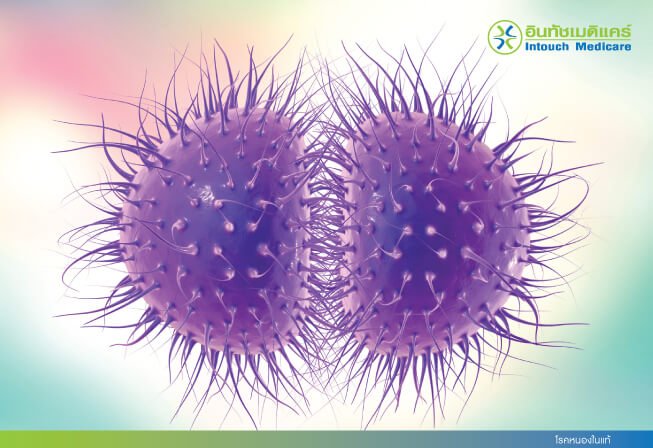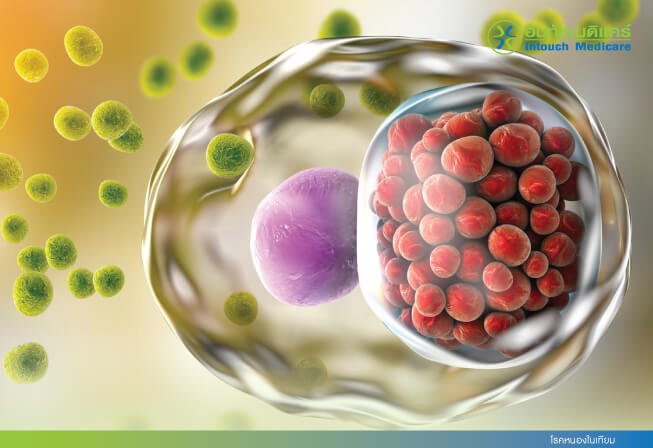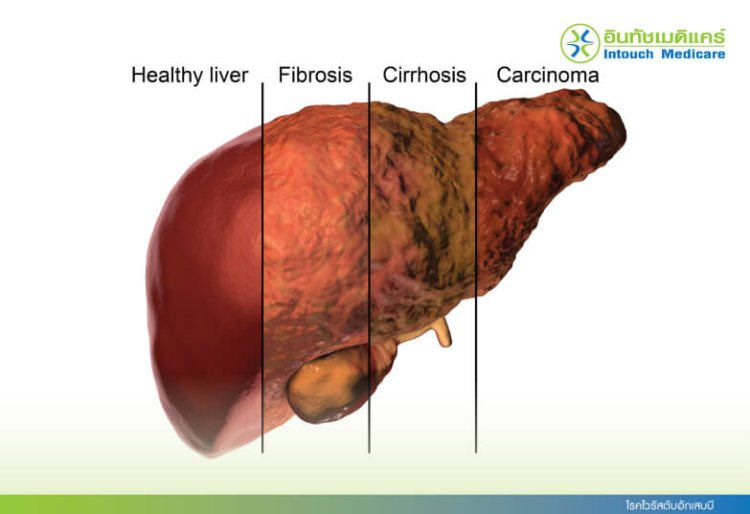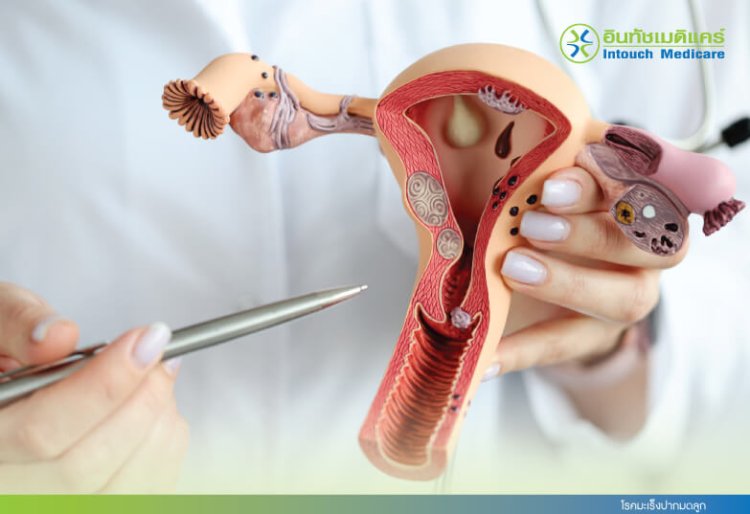Nowadays, STDs continue to be diseases with an increasing number of patients every year, due to cohabitation before marriage among teenagers, young adults, and working-age adults. Mostly, there is a lack of knowledge and understanding about STD prevention. This results in many couples facing undesirable symptoms from sexual intercourse, escalating to severe cases, with reluctance to visit doctors due to embarrassment.
From the misunderstandings mentioned above, today Intouch Medicare will clarify doubts for those who are still unaware and those who are currently facing STDs. It will provide information on the importance of self-care and disease prevention in a simple and understandable way. Let’s take a look.
- What are Sexually Transmitted Diseases (STDs)?
- Overview of Sexually Transmitted Diseases
- Guidelines to follow when infected with a Sexually Transmitted Disease
- Who are at risk of contracting Sexually Transmitted Diseases?
- Ways to prevent Sexually Transmitted Diseases
- Testing for Sexually Transmitted Diseases

What are Sexually Transmitted Diseases (STDs)?
Sexually Transmitted Diseases (STDs) are a group of diseases transmitted from person to person, primarily through sexual intercourse between men and women, as well as sexual activities within the LGBT community.
Some STDs can be transmitted through different types of contact, including oral, vaginal, or anal. These diseases can also be passed from mother to child. It is extremely important to seek proper medical treatment and to follow the correct procedures for managing these conditions.

Overview of STDs
Genital Wart
- Genital warts , also known as Condyloma Acuminata, are caused by the Human Papillomavirus (HPV) types 6 and 11.
- The incubation period for these warts is about 1 to 6 months.
- They are transmitted through sexual intercourse and sexual contact with an infected person.
- The symptoms include soft, pink flesh protrusions from the skin, spreading outward and resembling rooster combs or cauliflower. These warts are commonly found around the vaginal opening and under the foreskin of the penis.
Syphillis
- Syphilis is caused by the bacterium Treponema pallidum.
- The incubation period ranges from 9 to 90 days.
- It is transmitted through sexual contact, and a pregnant mother with syphilis can also pass the disease to her baby.
- The symptoms of syphilis are categorized into four stages:
Primary Syphilis : Characterized by the appearance of a firm, painless sore at the infection site.
Secondary Syphilis : The initial sore disappears, followed by symptoms such as fever, muscle aches, sore throat, and a rash that can appear on the palms, soles, or all over the body.
Latent Syphilis : This stage often presents no visible symptoms.
Tertiary Syphilis : The bacteria damage the brain, nerves, eyes, heart, blood vessels, liver, bones, and joints.
Chancroid
Chancroid is a bacterial infection caused by Haemophilus ducreyi.
- It has an incubation period of 4-7 days
- It is transmitted through sexual contact.
- In men, it starts with the formation of a pus-filled bump on the genitals, which eventually bursts to form an ulcer. The ulcer has irregular, non-hardened edges and can be extremely painful and bleed.
- In women, the symptoms are generally similar to those in men, but if the ulcer is located on the vaginal walls or cervix, it may not cause any symptoms or could result in pain during sexual intercourse.
Herpes genitalis
- Caused by HSV type 2 virus
- Incubation period: 4-7 days
- Transmitted through sexual intercourse or sexual contact with an infected person
- Symptoms include clear fluid-filled blisters in the genital area, usually in clusters, causing burning pain and itchiness. When these blisters burst, they form shallow, painful sores. Commonly found on the lips, male genitals, vagina, and cervix.

Gornorrhea
- Gornorrhea Caused by Neisseria gonorrhoeae bacteria.
- Incubation period : 3-5 days.
- Symptoms include : In men: Yellow-green discharge from the tip of the penis, painful urination. In women: Yellow-green vaginal discharge, painful urination, lower abdominal pain.

Chlamydia
- Caused by Chlamydia trachomatis bacterium.
- Incubation period : 5-7 days.
- Symptoms are similar to true gonorrhea, but the key difference is that chlamydia is not caused by the Neisseria gonorrhoeae bacterium.

Vaginal Trichomoniasis
- Vaginal Trichomoniasis Caused by the Trichomonas vaginalis parasite.
- Incubation period : 1 – 6 months.
- Symptoms in women : Abnormal, dark-colored vaginal discharge with a strong odor, excessive frothing, and irritation or burning in the vaginal area.
- Symptoms in men : Mild symptoms, clear mucous discharge or discharge mixed with pus, itching, or pain in the urethra.

- Caused by the Hepatitis B virus (HBV).
- Incubation period : 30 – 180 days.
- Symptoms after the incubation period can include low-grade fever, loss of appetite, fatigue, nausea, vomiting, and pain under the right rib cage. This can be followed by jaundice (yellowing of the skin and eyes). Chronic infection can lead to progressive liver damage, potentially resulting in cirrhosis and liver cancer.
- The best prevention method is through immunization with the Hepatitis B vaccine

AIDS (Acquired Immunodeficiency Syndrome) caused by HIV Infection
- Caused by the human immunodeficiency virus (HIV).
- Incubation period: 1 – 4 weeks.
- Early-stage symptoms may include fever, sore throat, body aches, skin rash, or swollen lymph nodes in the neck. These can disappear on their own. Without diagnosis and treatment, an infected person may appear healthy, but the virus gradually destroys the immune system and CD4 white blood cells. When the CD4 count drops below 200, it enters the final stage of infection and develops into AIDS.

Cervical Cancer caused by HPV Infection
- Caused by HPV (Human Papillomavirus), particularly types 16 and 18.
- Incubation period : Several months to several years.
- Symptoms include foul-smelling vaginal discharge, abnormal bleeding after sexual intercourse, unexplained weight loss, lower abdominal pain, and difficulty in urination.
- Regular cervical cancer screenings and HPV Vaccination are recommended for prevention
Guidelines to follow when infected with a Sexually Transmitted Disease.
- Abstain from sexual activity, including self-stimulation, to prevent spreading the infection.
- Do not self-medicate; always seek treatment from a healthcare professional to avoid drug resistance.
- Medication alone is not a cure; direct medical treatment is crucial for effective management and to receive accurate advice.
- Attend all scheduled medical appointments and strictly follow the doctor’s instructions.
- Inform your spouse or partner about the infection and encourage them to get tested and treated as soon as possible.
- When diagnosed with an STD, also get tested for HIV.
- In cases of Gonorrhea, men should not squeeze their genitals to check for discharge as it can worsen inflammation.
- Keep the genital area and its surroundings clean and dry.
- Avoid alcohol and alcoholic beverages entirely.

Who are at risk of contracting Sexually Transmitted Diseases?
- Engaging in oral or anal sex.
- Drug use, including sharing sexual enhancement devices.
- Having sex with sex workers without using condoms.
- Having more than one sexual partner.
- Engaging in unprotected sex, or experiencing condom breakage, leakage, or slippage during intercourse (in any form of sexual activity).
- Having a sexual partner who has an Sexually Transmitted Disease (STD).
- Having a history of one or more STD infections in the past year.

Ways to prevent Sexually Transmitted Diseases.
The best way to prevent Sexually Transmitted Disease is to abstain from sexual activity. However, if abstinence is not an option, the following practices should be followed :
- Avoid frequently changing sexual partners. Men should use condoms during every sexual encounter.
- Always use condoms, especially when having sex with a new or unfamiliar partner.
- Avoid sexual activity during menstruation, as it can increase the risk of infection.
- Refrain from engaging in anal sex, as it carries a higher risk of infection.
- Regularly undergo blood tests, especially for those in high-risk groups and newly married couples. Regular medical check-ups can help in early detection and timely treatment of STDs.

Sexually Transmitted Diseases (STDs) often cause embarrassment for patients, leading some to avoid seeking medical treatment. This, combined with a lack of awareness and understanding of appropriate behaviors when infected, can result in disease progression and transmission to others.
Therefore, it’s crucial for individuals diagnosed with an STD to overcome any embarrassment and consult a healthcare professional. It’s also highly important for their sexual partners, such as spouses or partners, to be involved in the treatment process. This collaborative approach helps prevent reinfection and reduces the risk of long-term complications.
References
- What is Gonorrhea?” article by the ThaiHealth Promotion Foundation
- “Follow-up of Contacts of Sexually Transmitted Diseases that can be Completely Cured,” an article from Siriraj Medical Journal.
- Assoc. Prof. Dr. Denpong Patanasethanot, on “Sexually Transmitted Diseases (STDs),” from the Department of Clinical Pharmacy, Faculty of Pharmaceutical Sciences, Khon Kaen University.
For more info and make appointment
![]() Hot Line 081-562-7722
Hot Line 081-562-7722

Suphansa Niawbupha ,M.D.
General Practitioner
![]() Latest edit : 22/08/2023
Latest edit : 22/08/2023
![]() Images may be used without prior permission exclusively for educational or informational purposes, as long as proper credit is given to intouchmedicare.com
Images may be used without prior permission exclusively for educational or informational purposes, as long as proper credit is given to intouchmedicare.com




